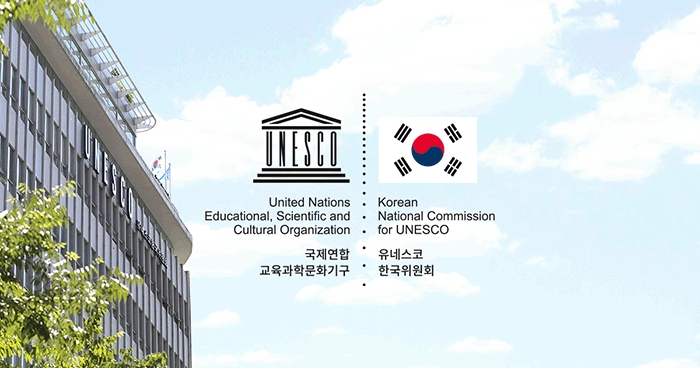한국위원회 소식
| 신임 사무총장 프로필 |
|---|
| 등록일 2000-10-10 |
|
이 력 서 성 명 : 김 여 수(金 麗 壽)·1936년 12월30일 : 만 63세 본 적 : 서울특별시 중구 회현동 2가 66-2 (원적 : 황해도 해주시) 주 소 : 서울특별시 종로구 청운동 108-20 청풍헌 빌라 301호 학력 1959. 6. 미국 하버드 대학교 졸업 (철학전공, 학사) 1966. 5. 독일 본 대학교 철학 박사 학위 경력 66∼67 합동통신 워싱턴 지국장 67∼71 국가안전보장회의 전문위원 71∼77 성균관대학교 철학과 조교수, 부교수 74 싱가포르국립대학교 방문교수 77∼98 서울대학교 철학과 조교수, 부교수, 교수 81 정신문화연구원 기획조정실장 겸 철학연구실장 80∼85 유네스코 제 21차 (베오그라드), 23차 (소피아) 총회 한국대표 81∼86 한국 분석 철학회 회장 81∼83 문화공보부 자문위원 81 세계문화정책회의 (멕시코) 한국대표 82∼90 한국 하버드 동문회 회장 90 우드로 윌슨 국제학술원 연구원 90∼94 하버드 대학교 총동문회 아시아 태평양 지역 이사 92∼96 아시아 아프리카 철학회 (AAPA) 사무총장 93∼현재 세계철학회 (FISP) 집행위원, 부회장 93∼95 서울대학교 철학사상연구소 소장 94∼95 한미 21세기 위원회 위원 94∼95 국제연합 50주년 한국위원회 위원 95∼96 한국철학회 회장 95∼96 파리 유네스코 본부, 사회과학 분야 선임국장 96∼00 파리 유네스코 본부, 철학윤리국 국장 2000 한국정신문화연구원 초빙교수 저서 Cultural Policy in Korea (Paris; UNESCO, 1976) The Role of the University in National Development (New Delhi, India; Vikas Publishing, Co., 1980) 근대화 (공저), 서울대 출판부 (1981) 철학개론 (공저), 양서원 (1987) 언어와 문화, 철학과 현실사 (1997) A Common Framework for the Ethics of the 21st Century (Paris; UNESCO, 1999) 국문논문 비트겐슈타인과 본질철학의 종언, 철학연구, 제5집 (1970) 독일에 있어서의 국가와 지성, 미래를 묻는다, 제3권, 한국 미래학회편 (1971) 정의 문제의 철학적 구조, 문학과 지성, 제7권 제3호 (1976) 환원적 분석, 철학, 제13집 (1979) 산업화와 가치, 인문과학, 제5집, 성균관대 인문과학연구소 편 (1976) 진리란 무엇인가? 현대사회와 철학, 문학과 지성사 (1981) 진리와 실재론, 철학연구, 제 18집 (1983) 인문과학에 있어서의 과학적 설명, 인문논총, 제10집, 한국정신문화연구원 (1983) 비트겐슈타인의 이해를 위한 소묘, 비트겐슈타인의 이해, 분석철학 연구회편 (1984) 분석철학의 전개에 있어서 의미와 진리, 철학, 제26집 (1986) 방법론 연구, 철학사상의 제문제, 한국정신문화연구소 편 (1986) 한국철학의 현황, 한국에서 철학하는 자세들, 집문당 (1986) 언어비판으로서의 철학, 인문과학, 제2집, 경북대 인문과학연구소 편 (1986) 19세기 영국철학에 있어서의 국가와 개인, 인문논총, 제19집, 한국정신문화연구원 (1987) 문화비판으로서의 언어비판, 철학과 현실, 1988년 봄호 (1987) 미국에 있어서의 철학과 사회, 미국학 제11권, 서울대 미국학연구소 (1988) 진리와 문화주체성의 문제, 철학 제32집 (1989) 상대주의 논의의 문화적 위상, 철학과 현실 1991년 봄호 (1991) 서구화, 국제화, 그리고 세계화, 철학과 현실 1994년 봄호 (1994) 세기말 세계변화와 문화종합의 과제, 말의 만남, 만남의 말, 나남출판사 (1994) 서양 문화종합의 미래, 문화철학, 한국철학회 편 (1995) 21세기와 가치: 보편윤리의 전망, 감사, 1997년 9월호 21세기 윤리를 위한 공동의 틀, 철학과 현실, 2000년 가을호 영문논문 Reductive Analysis and Ontology in Language, Logic and Philosophy, Proceeding of the 4th International Wittgenstein Symposium (Austria; 1979) The Interaction of Aesthetic and Intellectual Traditions: in the Woodrow Wilson International Center for Scholars (ed.), Reflections on a Century of United States-Korea Relations (New York; University Press of America, 1983) Meaning and Truth in the Development of Analytic Philosophy, Language Research 22 (1986) Philosophy in Korea: in UNESCO (ed.), Teaching and Research of Philosophy in Asia and the Pacific (Paris; UNESCO, 1986) Philosophy and Cultural Dialogue, Proceeding of the International Conference of the Afro-Asian Philosophy Association on Cultures in Conflict or Dialogues? (1990) The Idea of Cultural Identity and Problems of Cultural Relativism, Occasional Paper (Washington D.C.; Woodrow Wilson International Center for Scholars, 1990) Ideology as a Problem in Korean Society, Occasional Paper (Washington D.C.; Woodrow Wilson International Center for Scholars, 1990) The Image of Man as the Image of Nature: A Role for Philosophy of Nature Today, World Conference of Philosophy, Nairobi (1992) Culture and Development: Toward a Conception of Cultural Developments in I. Kucuradi & E. Agazzi (eds.), Philosophy and Cultural Development (Ankara, Turkey; International Federation of Philosophical Societies, 1993) Korean Philosophy: in Robert Audi (ed.), The Cambridge Dictionary of Philosophy (Cambridge; Cambridge University Press, 1995) Science and Technology in Traditional East Asia, Proceedings of the 7th Conference of Forum Engelberg, 1996. Korean Debate on Public Philosophy (Carnegie Council on Ethics and International Affairs, 1996) Prospects for a Universal Ethics (UNESCO, 1998) Universality as a Regulative Ideal, Convention for European Philosophy and History of Ideas, (1998) Search for Common Values: A Contribution to the World Culture Report (UNESCO, 1998) Philosophy and the Prospects for a Universal Ethics: in M. Stackhouse and P. Paris (eds.), Religion and the Powers of the Common Life, (Harrisburg, Trinity Press, 2000) CURRICULUM VITAE Yersu Kim born on December 30, 1936 EDUCATION 55-59 Harvard College (B.A.), Cambridge, Mass., U.S.A. 60-66 University of Bonn (Dr. Phil.), Bonn, Germany EXPERIENCE 66∼67 Hapdong News Agency, Washington Bureau Chief 67∼71 Counsel, National Security Council, Republic of Korea 71∼77 Professor of Philosophy, Sung Kyun Kwan University 74 Visiting Senior Lecturer, National University of Singapore 77∼98 Professor of Philosophy, Seoul National University 81 Director, Office of Planning and Coordination, The Academy of Korean Studies 80, 85 Delegate, 21st, 23rd General Assembly of UNESCO, Belgrade, Sofia 81∼86 President, Korean Society for Analytic Philosophy 81∼83 Advisor, Ministry of Culture and Information, Republic of Korea 82 Delegate, World Conference on Cultural Policy, Mexico City 82∼90 President, Harvard Club of Korea 90 Fellow, Woodrow Wilson International Center for Scholars, Washington, D.C., U.S.A. 90∼94 Regional Director for Asia & Pacific, Harvard Alumni Association 92∼96 Secretary General, Afro-Asian Philosophy Association 92∼ Vice-President, Member, Steering Committee International Federation of Philosophical Societies 93-95 Director, Institute of Philosophy, Seoul National University 94 Member, Korea-United States 21st Century Council 95 Member, The Republic of Korea Committee for the 50th Anniversary of the United States 95-96 President, Korean Philosophical Association 95-96 Principal Director, Social and Human Services Sector, UNESCO 96-2000 Director, Division of Philosophy and Ethics, UNESCO 2000∼ Invited Professor, The Academy of Korean Studies |
| 이전글 | UNESCO Festival 2000-Hearing the world |
|---|---|
| 다음글 | 교대생 및 사대생 자원봉사자 모집-국제이해교육 체험학습 |



.svg)



